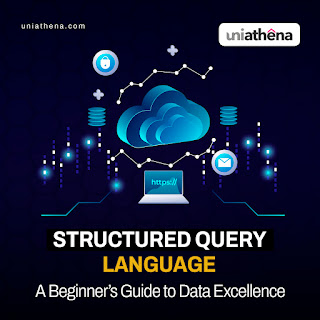Understanding Management Information Systems: A Key to Business Success
In today’s digital era, an online Management Information Systems certificate will go a long way in securing a better career prospect in any industry. Whether you are a fresher or looking to upskill, this certification course places you in a position to understand how data and technology meet.
What Are Management Information Systems?
Management Information Systems can be defined as an organized integration of hardware, software, data, and procedures. It is designed to collect, process, store, and transmit information for the purpose of supporting the decision-making and managing functions of the organization. Primarily, MIS converts raw data into useful information that facilitates informed decisions from authorities.
The Significance of MIS in Today’s Business Environment
The MIS forms the backbone for effective strategic decision-making for modern businesses in many ways and helps an organization get the right information at the right time. By integrating various business processes, MIS improves overall operational efficiency, reduces redundancy, and hence provides smoother communication between teams. Moreover, the movement for digital transformation makes organizations increasingly dependent on technology. MIS professionals will lead the next industrial revolution using artificial intelligence, blockchain, robotics, and quantum computing not only to ensure that organizations can compete and create new markets but also to lower the cost of doing business.
Advantages of Management Information Systems
Different benefits arise with the implementation of an effective MIS. Some of them are:
Increased Efficiency: With MIS, routine tasks can be automated and data management be centralized, thereby implying less effort and reduced chance of errors.
Improved Decision-Making: A decision-maker will be able to perform trend analysis more effectively, analyze the risks and measure the consequences of a course of action with real-time information and reports. This ability enables proactive management that can speed up the process at which the organization responds to changed circumstances and takes advantage of opportunities.
Cost Reduction: Effective operations imply a reduced cost of operation, thus enabling an organization to utilize available resources in the best possible manner.
Exploring the Types of Management Information Systems
There are many types of Management Information Systems, which perform diverse functions:
Transaction Processing Systems: It helps in handling daily transactions efficiently through the capturing and processing of data originating from day-to-day operations, as well as sales receipts and payrolls. Such systems allow organizations to keep records of accounts up to date and keep the wheels of business smoothly functioning with minimum errors or delays.
Decision Support Systems: It assists the complicated decision-making by helping advanced analytical tools and models that allow managers to test different possible scenarios and consequent outcomes. DSS helps a decision-maker come to an evidence-based solution in keeping with the goals of the organization through data integration from different segments, coupled with advanced analyses.
Executive Information Systems: EIS provides easy access to top-level executives for internal and external information relevant to the completion of their strategic objectives. Most EIS solutions include a dashboard and visualization tools, summarizing key performance indicators and trends that enable rapid insights into organizational health and inform strategic decisions among executives.
Customer Relationship Management: This system focuses on the interaction of a company with its present and future customers. CRM systemizes information about customers, maintains records of contact dialogue, automates processes before and after an interaction, and improves customer relationships, hence providing better service and attracting more sales by offering personal and effective marketing.
Explore UniAthena’s Management Information Systems Online Course
This Management Information Systems Online Course covers major areas within Management Information Systems, which range from the development of information systems, the structure and importance of MIS to various types of Transaction Processing Systems (TPS), and Office Automation Systems (OAS). Learn about the intricacies of decision support systems and acquire knowledge in MIS models and software applications, including Microsoft Dynamics and Excel.
With just one or two weeks of self-paced learning, acquire the knowledge of system implementation, cybersecurity basics, and the technological tools fueling current business operations. Besides, it also provides you with an understanding of how Excel can be used as a tool in information management to provide insightful reports. Seize this opportunity to develop your knowledge and understanding of business technology and its strategic implications. Take further your drive for digital transformation with this Diploma in Management Information Systems.
Enroll now.




Comments
Post a Comment